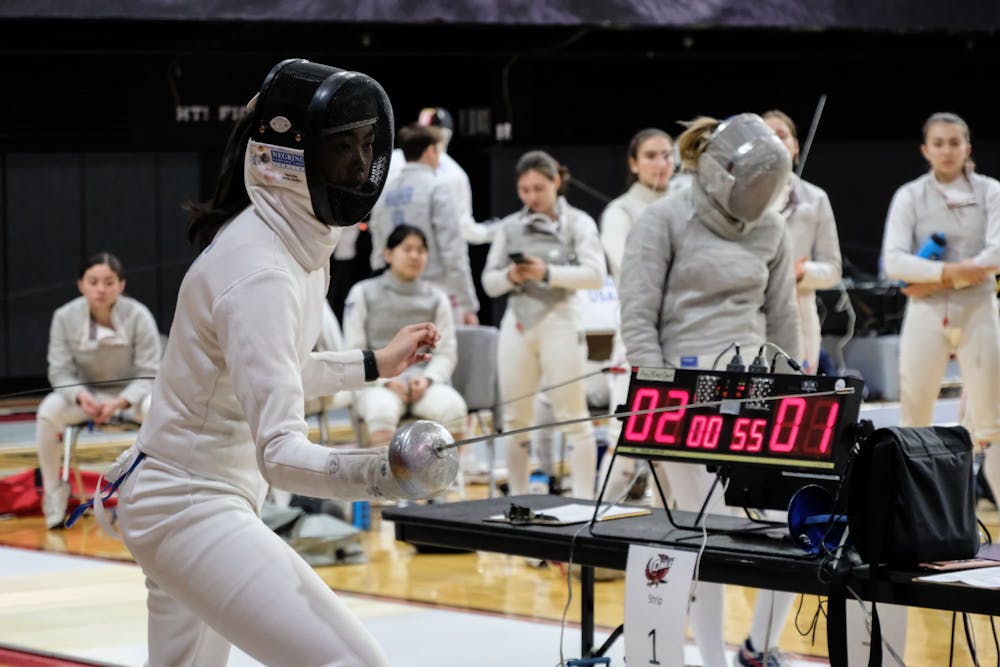
Penn fencing won't know until the middle of November if it will be able to practice or compete, but in the meantime, it is still training individually and connecting as a team.
Credit: Amanda Jiacheng ShenPerseverance is a word that both Penn men’s and women’s fencing have become very familiar with.
Although the team is still in Phase 0, meaning that the athletes must practice on their own, many are still putting in lots of work for their seasons ahead.
Senior Miranda Gieg has been doing various exercises on her own in order to stay in shape. She runs and exercises at Penn Park and has picked up jump-roping. Additionally, she has picked up both the "Murph" and "Tabata" exercise regimes during quarantine.
The Murph workout is named for Lt. Michael P. Murphy, a Medal of Honor recipient and Navy SEAL who was killed in action in Afghanistan in 2005. It is an intense routine that consists of a one-mile run followed by 100 pull-ups, 200 push-ups, and 300 squats, capped off by another one-mile run. Tabata, named after the Japanese researcher who developed it, emphasizes high-intensity, low-rest training that stresses cardiovascular performance.
“They all work on their own to stay in shape. They go out, do their sit-ups, push-ups," coach Andy Ma said.
The Quakers have not taken the lack of having a season as a reason to stop training, but have allowed it to propel them to excellence as they manage to still exercise on their own.
Ivy League rivals, specifically Cornell and Yale, are in Phase 1, so the teams can have some strength and conditioning activities together. On the contrary, Penn is still in Phase 0, restricting the team from practicing together. Both teams still receive workouts from their trainers and are practicing diligently on their own in any way that they can.
“Hopefully, we can start to practice in the spring, but this has to be decided by the University and Ivy office,” Ma said.
Once reached, Phase 1 will allow the Quakers to train for around four hours per week. However, when they meet, it will only consist of strength and conditioning; no skill training can occur during Phase 1. The phases that the teams are in are determined jointly by the schools themselves and the Ivy League office.
Penn will know by the middle of November if it can start to practice and if it will compete in the spring. However, in the meantime, the Red and Blue have been busy practicing on their own in a safe, socially distanced manner, and they plan to resume practice when notified.
This will be Gieg's final season on the team, but she still remains positive. Gieg is enjoying watercolor painting, cooking, and baking during quarantine to keep her busy.
“I am especially sad about not being able to see my teammates, who I really like seeing every day," Gieg said. "Some of my best friends are on the team."
On the bright side, the Quakers have been making the best of these unprecedented times. Some members of the team are even living with each other. They are using this lull to their advantage and are ready for what lies ahead of them.
The team is ambitious and working hard to return in order to compete and improve upon last season. Last year, the women placed second in the Ivy League Championships, while the men placed fourth. Eight fencers had qualified for the NCAA Championship right before the pandemic and were unable to attend. The team hopes to use this time to keep up its preparation for next season.
The Daily Pennsylvanian is an independent, student-run newspaper. Please consider making a donation to support the coverage that shapes the University. Your generosity ensures a future of strong journalism at Penn.
Donate




